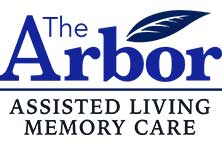
Having the Conversation
You are probably not looking forward to the discussion with your family regarding your or your loved one’s need for assisted living. We get it. It is often challenging to talk about a move late in life from a familiar place. And, the reasons that may be making the move necessary – an inability to care for oneself or for each other with dignity is not easy to talk about. Then, there is the perceived loss of independence. Tensions between family members can run high.
But, there are ways to get through this, and you might learn that it is not as difficult as you may imagine. Consider the following:
Talk about it
“The talk” can be viewed as a process where everyone’s opinions can be heard, but you’re planting the seed for the possible move. Start the conversation at the kitchen table by saying, “This might be difficult to talk about, but we think it might be time to consider new home with services that can best meet our/your needs. However, we want your input, and we want you to know our wishes, too. We don’t have to decide anything today, but let’s start the discussion so we can all think about it for a while.”
If you are a child or spouse looking to help
If Mom or Dad is having trouble with taking proper care of themselves and each other, having a talk might be necessary and you may feel like it’s out of your control. Our parents are often proud, hard-working, independent people who resist the idea that they need help…”I raised you, didn’t I?” And, other family members, often our siblings, may have a different opinion entirely. Arguments can occur if the conversation isn’t handled properly. Good ways to diffuse a potentially argumentative talk is to highlight the positives and control the tone of the conversation.
When speaking about assisted living, try to avoid institutional words like “facility.” This often brings up the image of a “convalescent home” or worse for older people. More accurately, modern senior living is described as a “Community” which offers “condo-style living” – much more than just a “room.” Highlight the activities and social opportunities that are offered in modern senior living to otherwise healthy residents rather than the treatment of people in poor health.
If your voice is assertive, slow down, pay attention, and be patient. Make a conscious effort to speak in a calm, quiet and pleasant tone of voice. Let your spouse or parent know that it is important to you that he or she be the one to make the final decision. Listen and validate feelings just as you would want them to do with you. The more a person feels they are not being heard, the louder they will speak.
Know the options
You may be learning about the different types of senior living communities. It can seem confusing and you may be unsure which type of community is right for you or your parents. There are several living and care models available, and the financial models vary, as well. If you are looking for a long-term commitment with an upfront deposit and are considering Independent Living, then a Continuing Care Retirement Community (“CCRC”) may be right for you. If you prefer a shorter-term commitment and a minimum deposit requirement and require more assistance with activities of daily living, then a rental Assisted Living and Memory Care community like The Arbor might be the best option.
Compare and contrast different senior housing communities and how they structure their rates. Understand your financial situation and options for funding (such as long-term care insurance or special programs for veterans). Also, research the community’s reputation and safety reports using resources like your State Department of Health.
And if you want to learn more from a professional who would love to help, contact us or come by for a cup of coffee!
Research the progression of an illness
If you or your loved one has been diagnosed with Alzheimer’s, Parkinson’s or other disease, share what you’ve learned from your doctor or your own research and discuss how the services offered by Memory Care communities like The Arbor could help you in six months, a year, 18 months from now – or more. As we all know, moving can a big change. Finding a facility that can meet the present and future needs for care and assistance will ensure that life doesn’t have to be disrupted a second time down the road should health decline as you or your loved one gets older.
Look – we know this is not the easiest thing you will do with your family this year. As our families grow older and grow apart, it may be less obvious that the need for help is there. And, we can’t always count upon our family members to let us know what is going on until it is too late. “We don’t want to be a burden” or “It is not my business to tell you what to do.” Opinions will differ, and often one person will take responsibility and do most of the work. The good news? You’re not alone, and you won’t be telling your story to someone who has heard it for the first time. We can help. We want to help – even if it means that The Arbor is not your perfect fit and you choose another community. So, please contact us. No pressure – no sales pitches. Just an honest, helpful assessment and some professional guidance.
Stay patient and positive!

